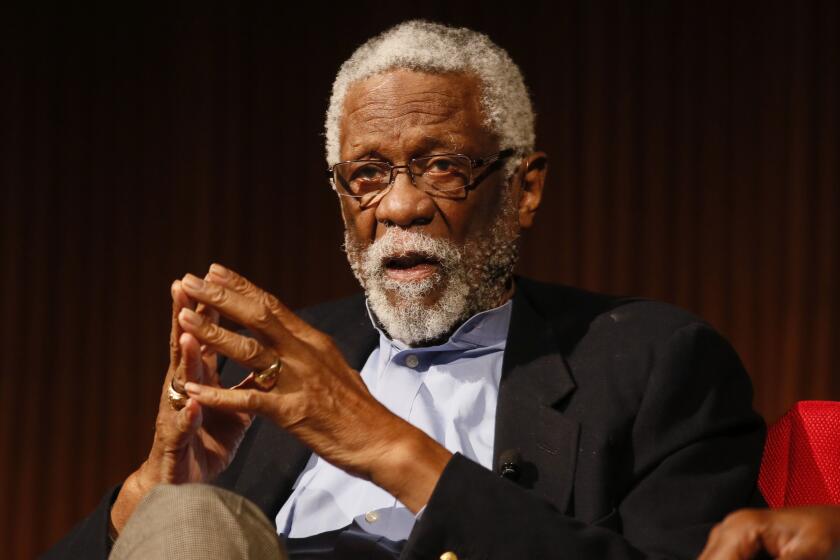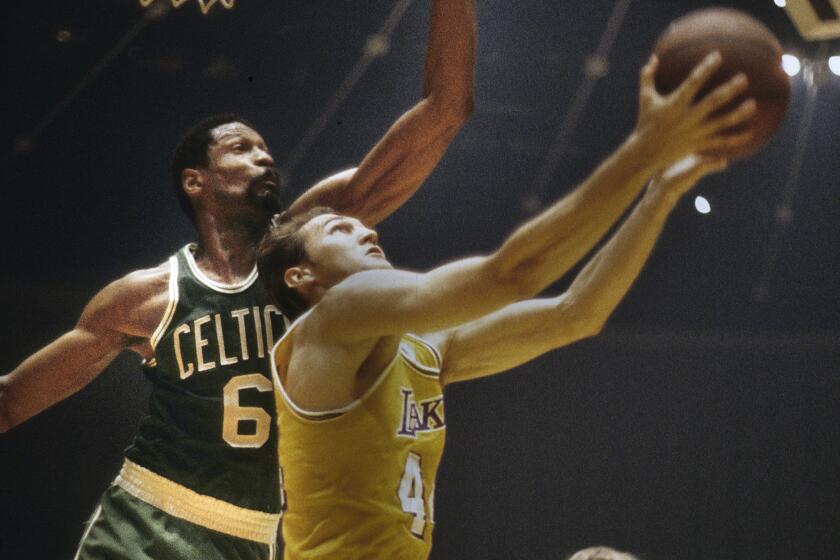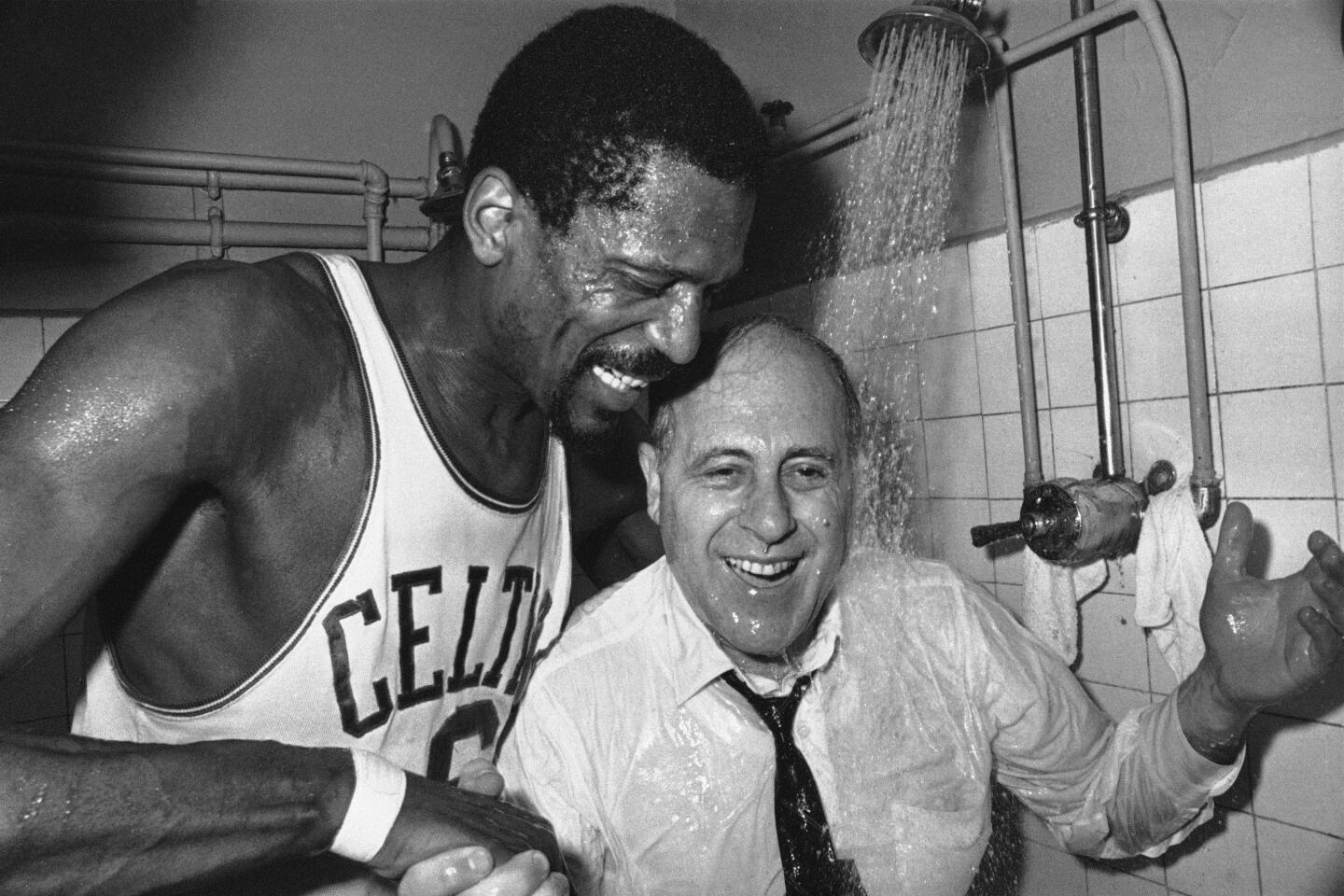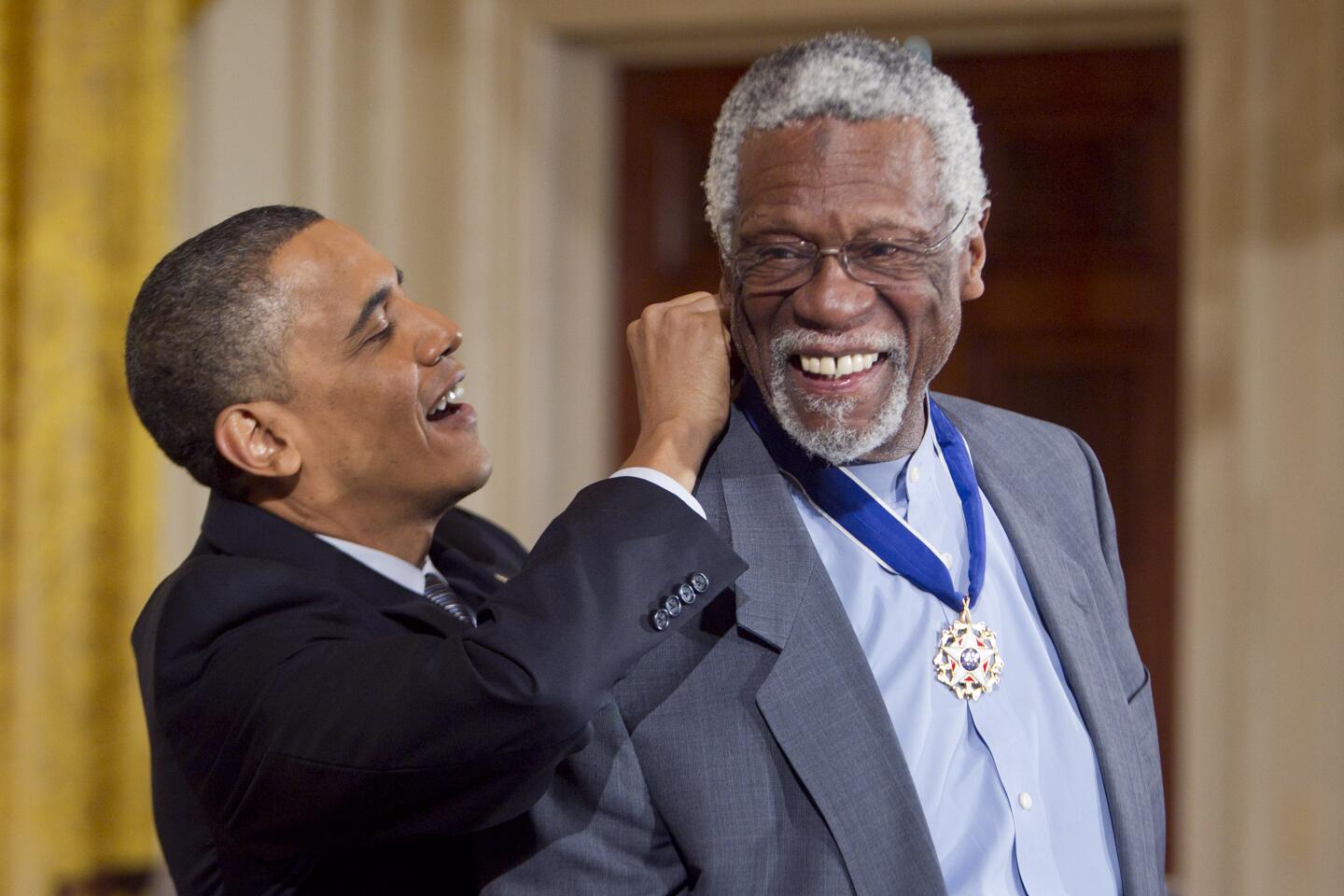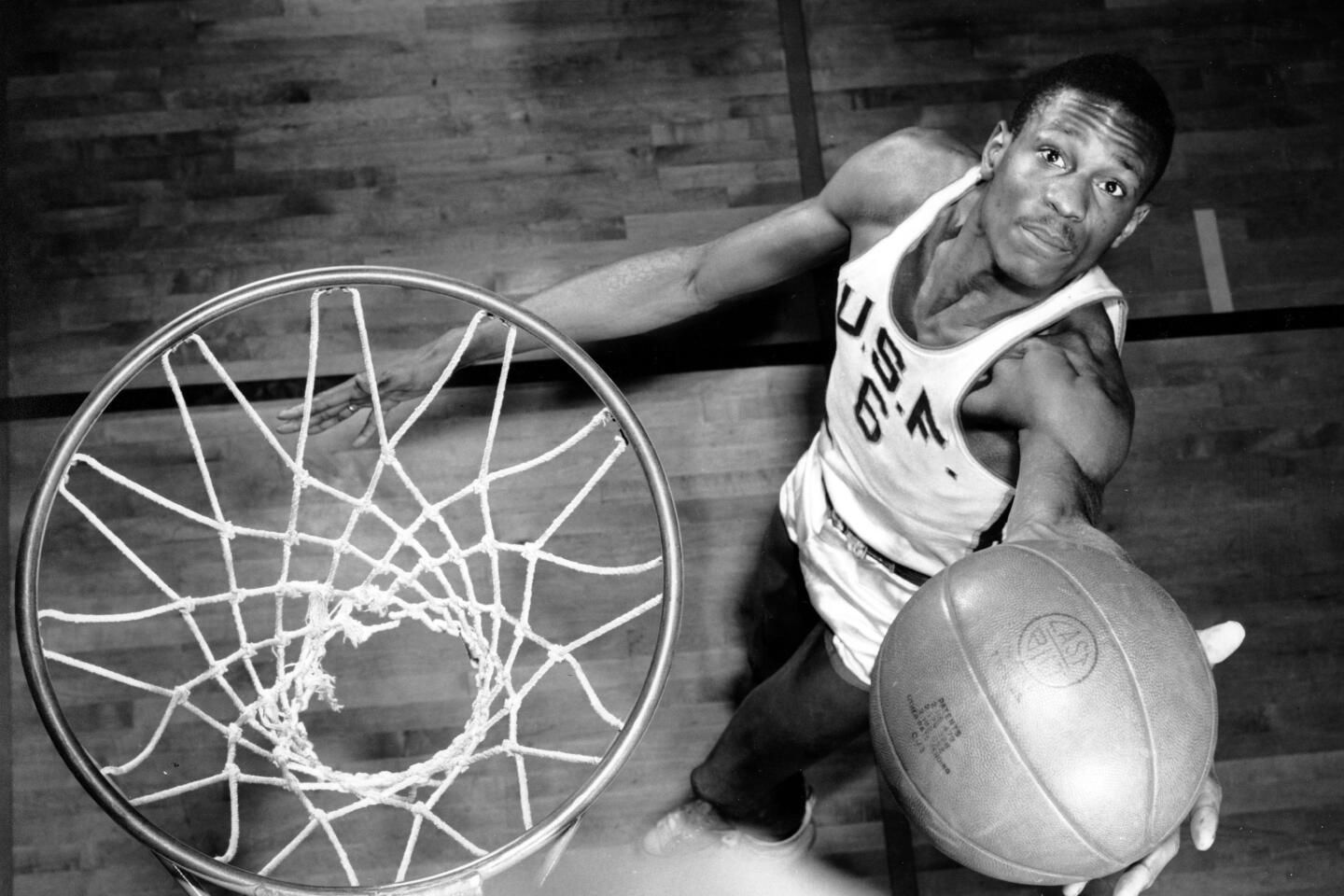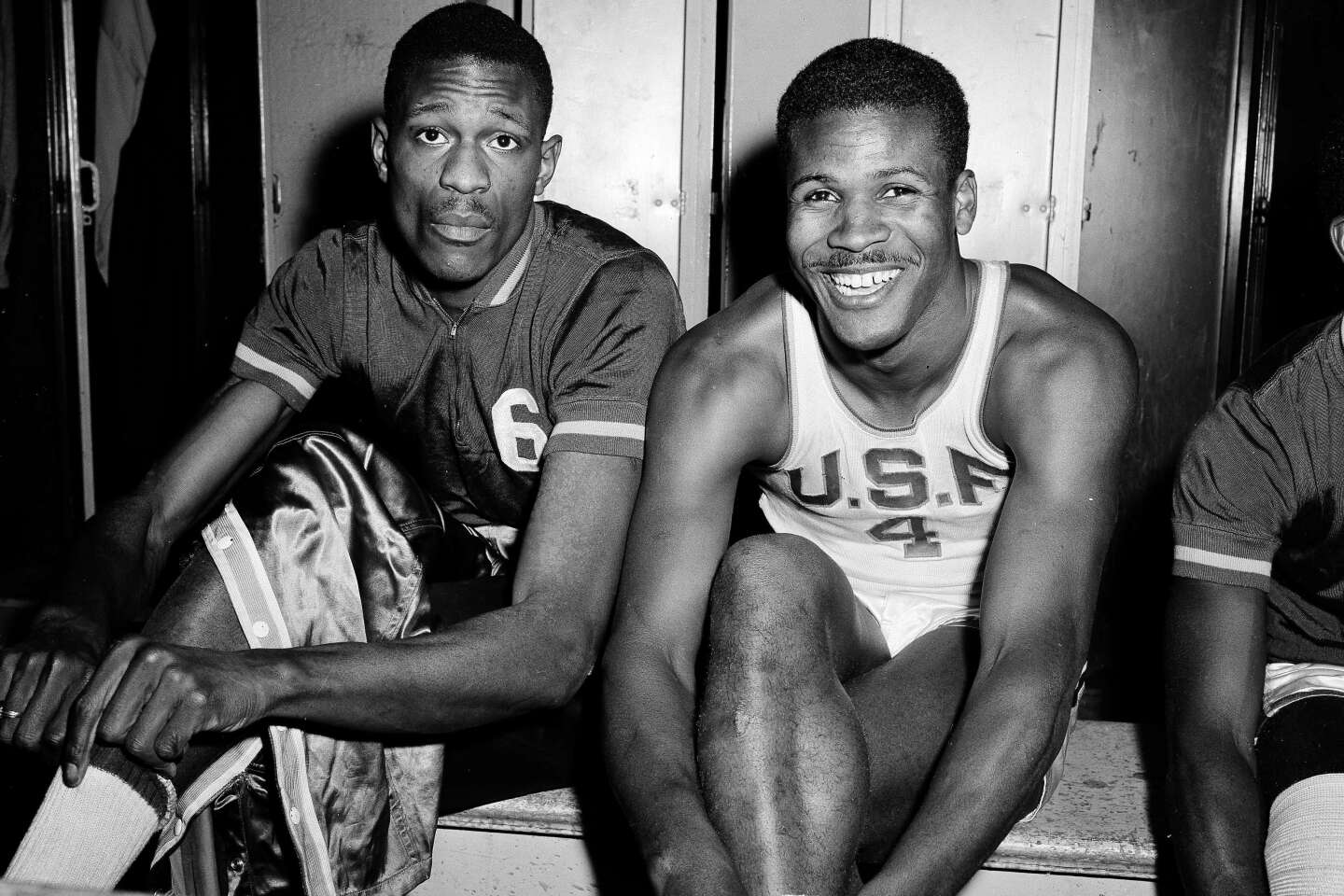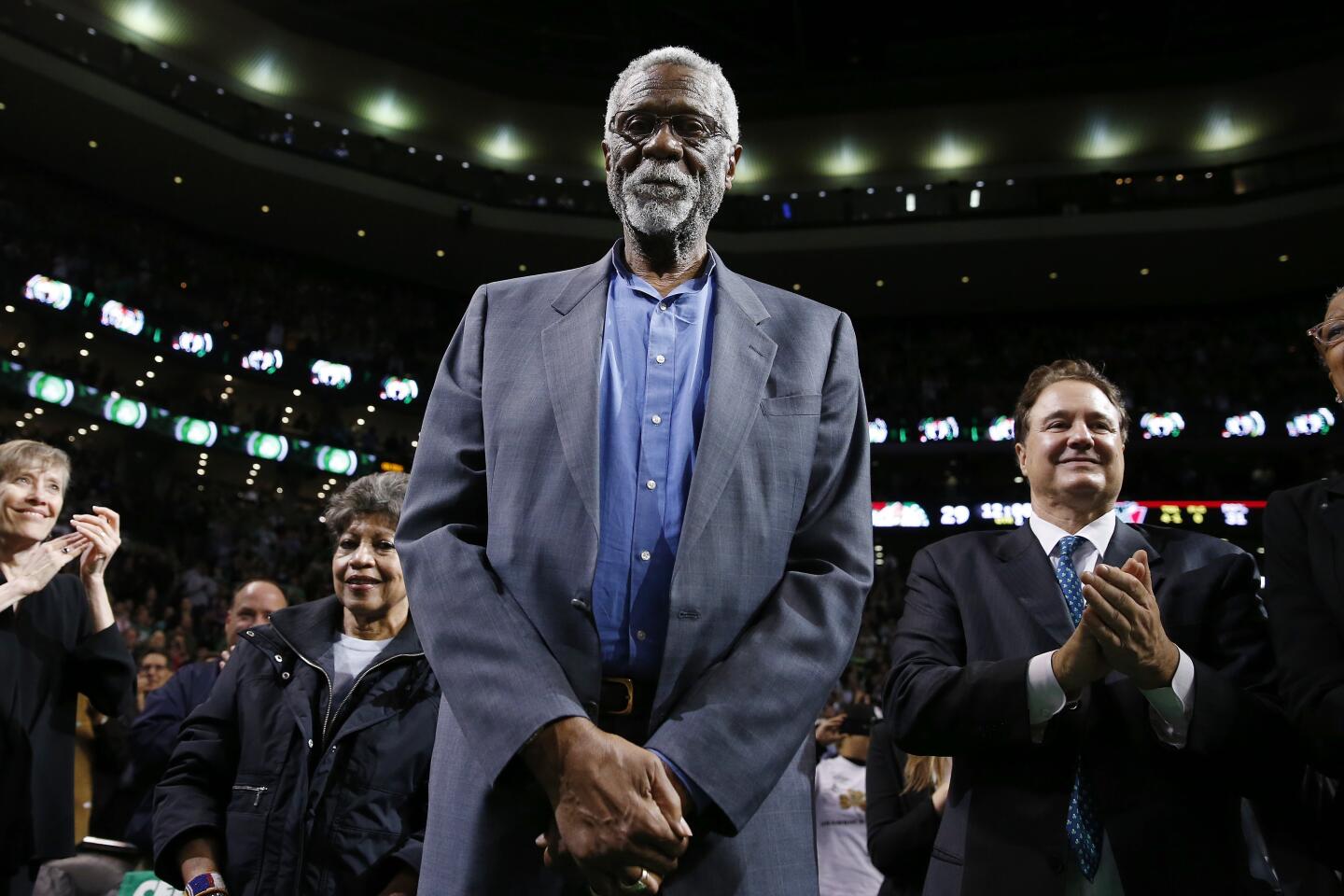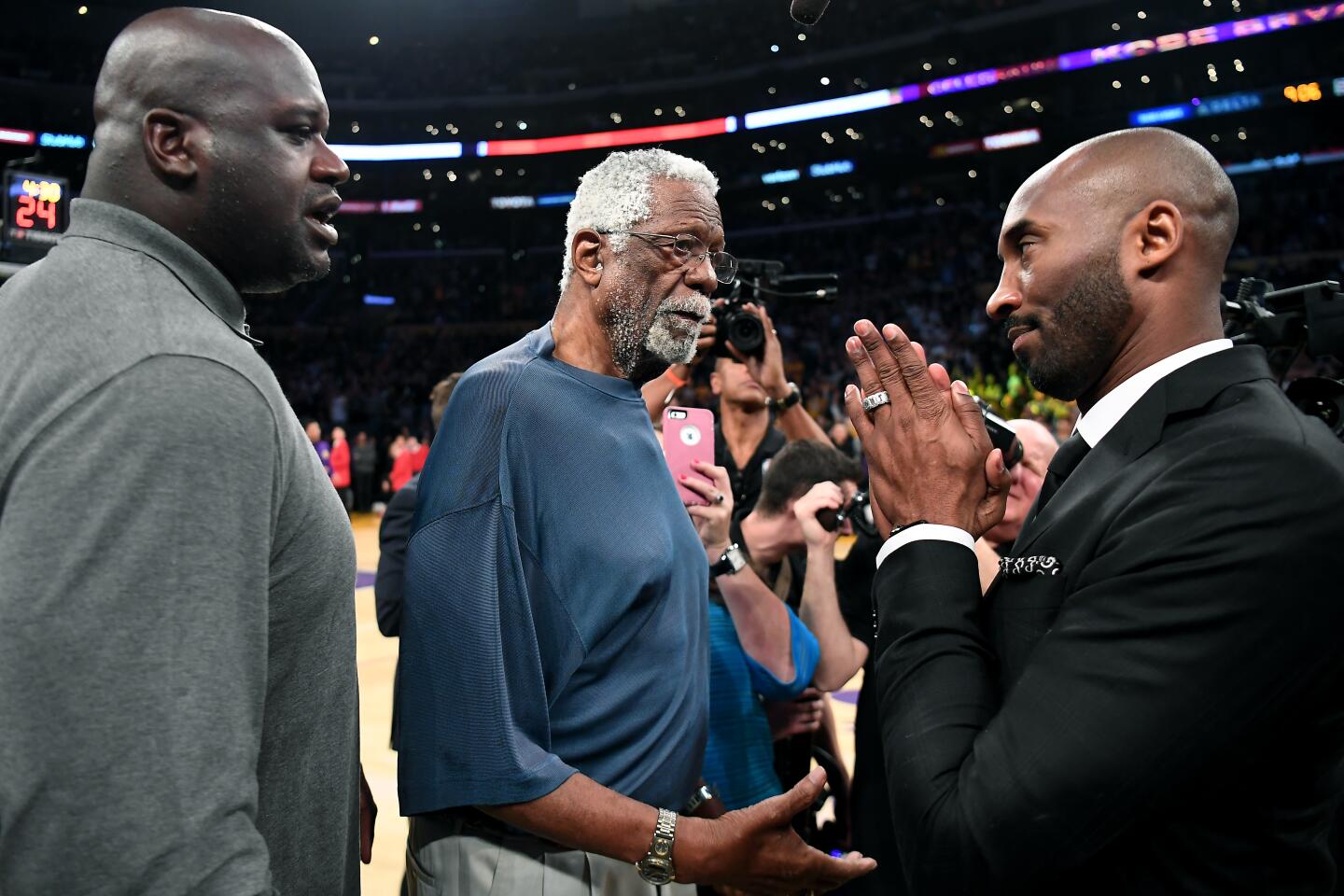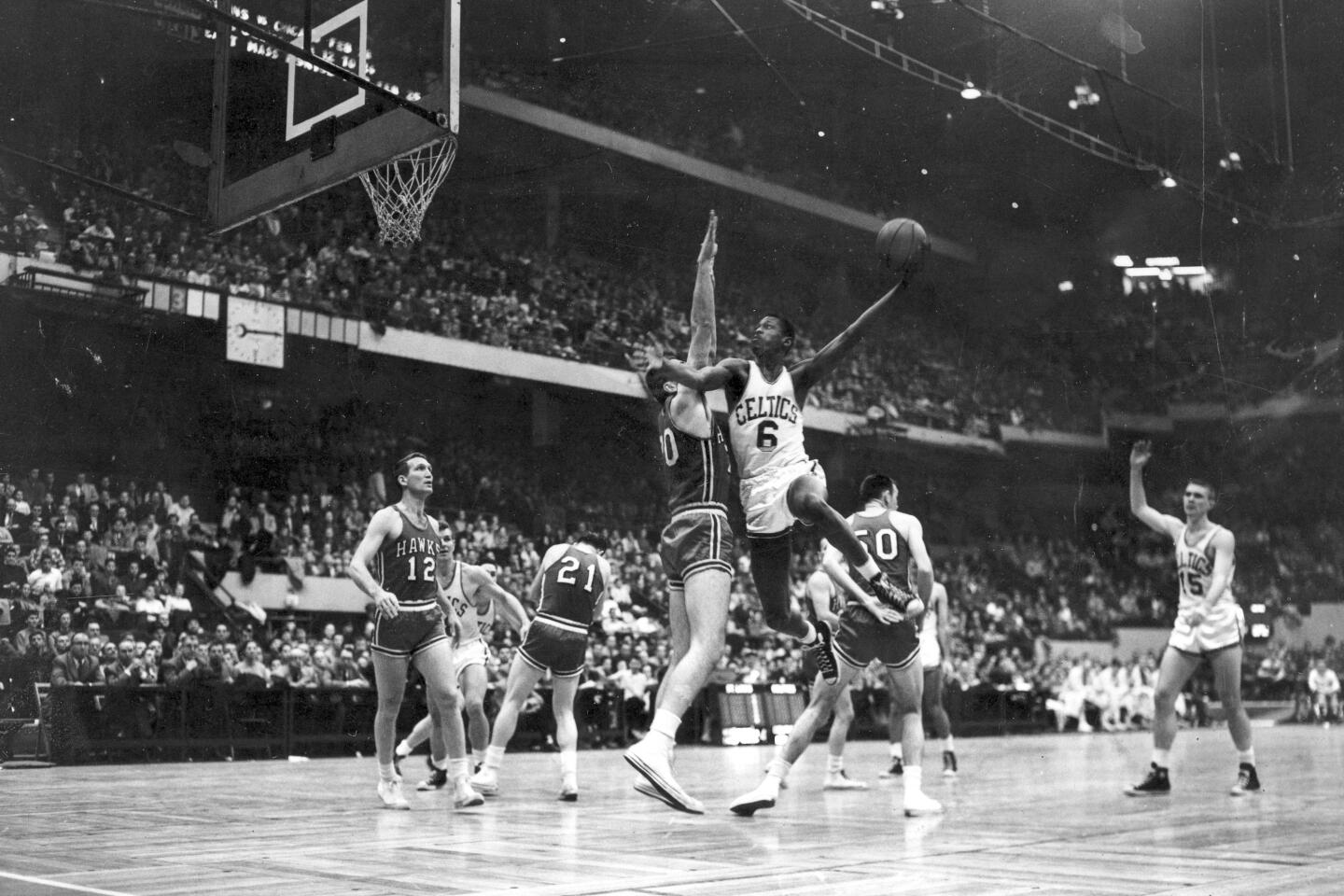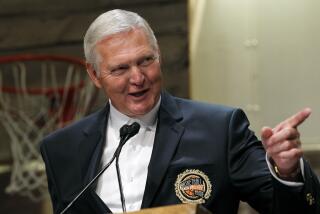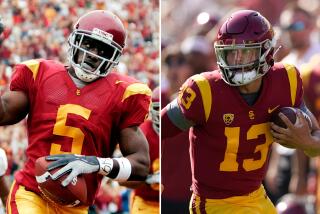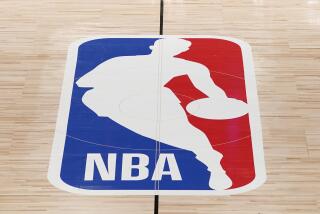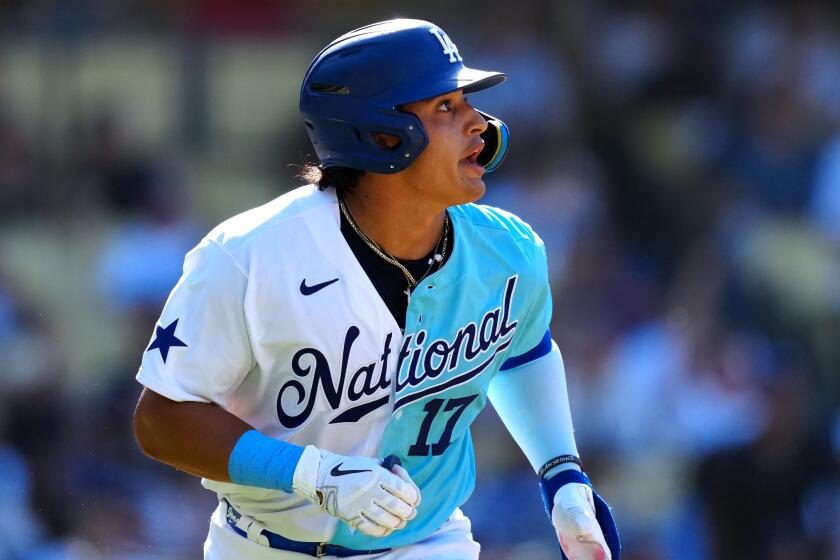Commentary: NBA needs to honor Bill Russell’s legacy by retiring his No. 6 uniform leaguewide
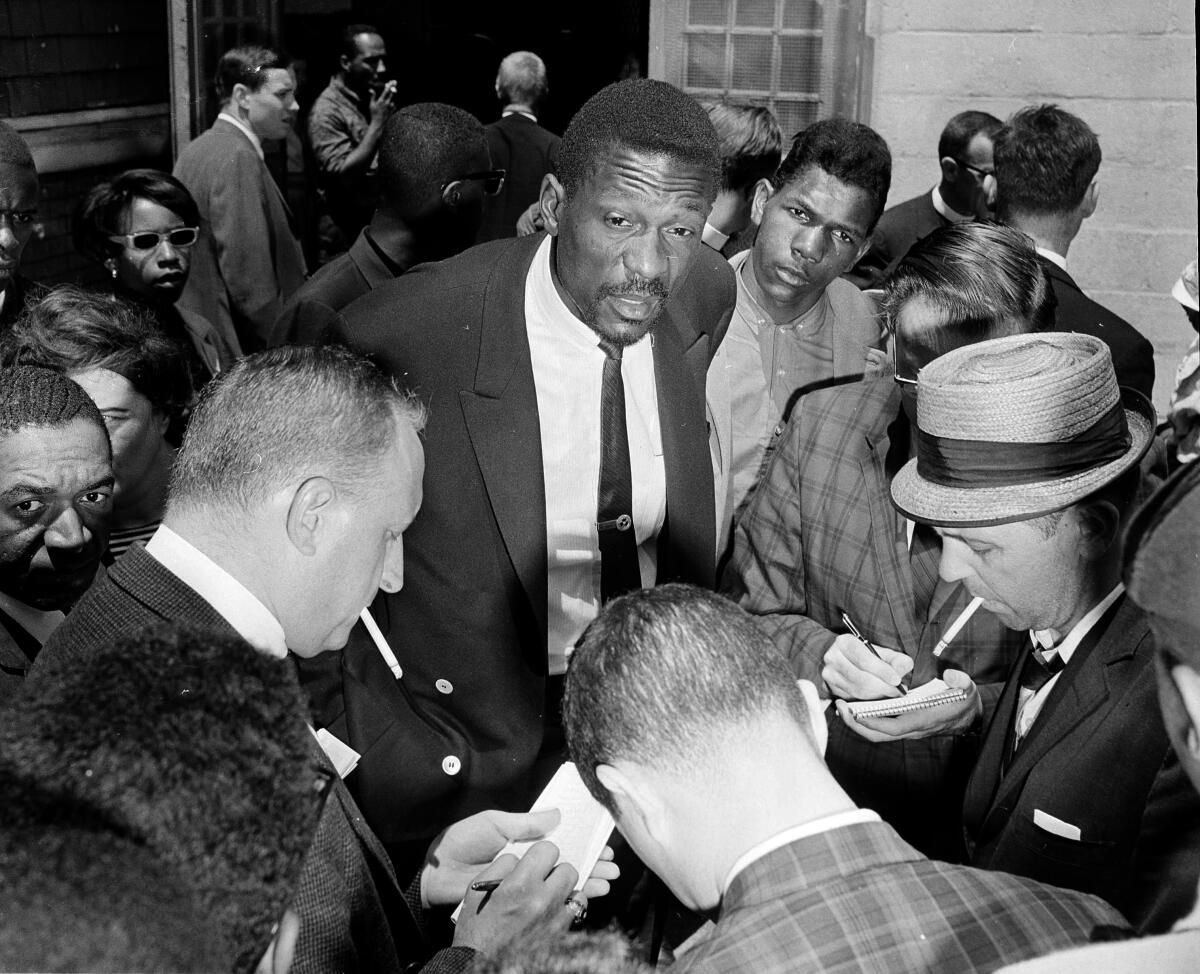
Some legacies are too important to leave alone, to trust that society will properly cherish and regularly celebrate them. They require special attention and direct action to ensure memories don’t fade as time passes.
Bill Russell has one of those legacies, and the NBA must do the right thing.
They need to retire the No. 6 uniform leaguewide, honoring Russell in much the same way that Major League Baseball honors Jackie Robinson.
The parallels between the two men, all-time great athletic performers who fought against prejudice and bigotry with the same intensity, makes the tribute an easy choice.
Boston Celtics Hall of Famer Bill Russell died at age 88 on Sunday. Here is the Los Angeles Times’ coverage of Russell’s achievements on and off the court.
“In every generation people make a difference not only with their play, but also with their persona,” Jerry West told The Times’ Bill Plaschke on Sunday. “Bill Russell and Jackie Robinson were in that same class.”
Twenty-five NBA players wore No. 6 last season, with only No. 3, 5, 8, 9 and 11 more popular. LeBron James is among the group currently wearing No. 6. The league could certainly let players finish out their careers in Russell’s number. But no one else should wear it — one last ultimate sign of respect for the incredible imprint Russell left on what it means to be an NBA champion and, more importantly, what it means to be a socially concerned and connected member of society willing to stand up to injustice.
It’s become the template for what it means to be an NBA player.
On the court, Russell played basketball with supreme purity, an emphasis on defense and rebounding as the means to winning. He did that better than anyone — 11 NBA championships, two college titles and an Olympic gold medal.
He was the NBA’s most valuable player five times despite never averaging 20 points per game.
He became the league’s first Black head coach, and by winning a championship, helped open doors for those who followed.
Boston Celtics legend and NBA Hall of Famer Bill Russell died on Sunday at the age of 88. A look at his life on and off the court in pictures.
His name is already on the trophy presented to the most valuable player of the NBA Finals, but that’s not enough.
By retiring Russell’s number and celebrating him on or around his birthday on Feb. 12, the NBA could tell Russell’s story annually to people who need to be reminded of it.
“My mother went on to tell me that I should never pick a fight with anyone, but that I should always finish the fight I was in,” Russell wrote in Slam magazine in 2020. “I’m 86 years old now and I figure I’ve got another fight to finish.”
That fight, of course, was for humanity and equality against those who treated Black people with hatred.
Russell led a 1961 boycott of Black players from an exhibition game in Lexington, Ky., after two teammates were refused service at a coffee shop. He met with Muhammad Ali alongside sports’ biggest Black stars as part of the Cleveland Summit in 1967.
He challenged racist fans in Boston and refused to merely offer respect when it wasn’t earned, and hosted integrated basketball camps in Mississippi following the murder of civil rights activist Medgar Evers.
Lakers legend Jerry West says NBA great Bill Russell made a difference on the lives of everyone around him. “I admired him so much as a human being.”
He met injustice with intelligence and anger, a combination that didn’t sit well with plenty of people.
Yet speaking up and speaking out has become common in the NBA — and Russell deserves credit for creating that.
“Bill stood for something much bigger than sports: the values of equality, respect and inclusion that he stamped into the DNA of our league,” NBA Commissioner Adam Silver said Sunday in a statement. “At the height of his athletic career, Bill advocated vigorously for civil rights and social justice, a legacy he passed down to generations of NBA players who followed in his footsteps.
“Through the taunts, threats and unthinkable adversity, Bill rose above it all and remained true to his belief that everyone deserves to be treated with dignity.”
In a league where it is largely become a safe space for expression against inequality and injustice, protecting Russell’s legacy is too important to leave to chance.
While Russell might have been uneasy with a tribute of this kind, the stakes are too high.
If No. 6 were in the rafters of every NBA arena and a day was dedicated to its greatest champion, the league could ensure that Russell’s story stays fresh.
More to Read
Go beyond the scoreboard
Get the latest on L.A.'s teams in the daily Sports Report newsletter.
You may occasionally receive promotional content from the Los Angeles Times.


